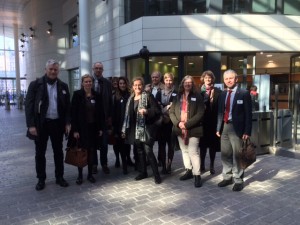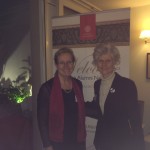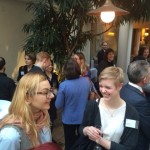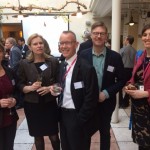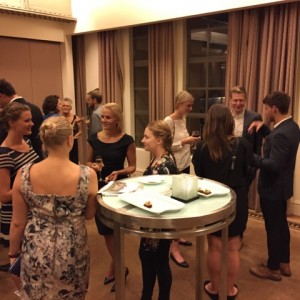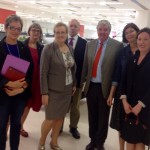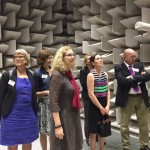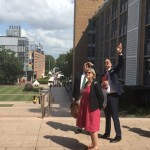On Monday and Tuesday the Vice-Chancellor’s Management Council visited Brussels. In two days we managed to fit in a dozen or so meetings, and on top of those an alumni reception.
In quick succession we met representatives of different EU bodies, as well as a number of the many organisations who aim to influence and monitor specific EU issues. Vinnova’s offices in Brussels generously provided us with venues for many of our meetings, and Dan Andrée and Sandra Oliviera gave us a valuable introduction to Vinnova’s own activities.
We were given an insight into the work with European Research Areas including the initiative to establish a European pensions fund to facilitate researcher movement. We also met Thomas Jorgensen of the European University Association, Christina Miller from the UK Research Office, Kurt Deketelaere from the League of European Research Universities and John Westensee who works with researcher support at Århus University. We also managed to fit in a visit to the European Parliament, the European Research Council and the Swedish EU representatives.
On Monday evening we hosted an alumni reception at Hotel Leopold. Some 50 people – former students, a few honorary doctors, and other friends of the university – gathered for a pleasant and relaxed event.
The trip gave us a concentrated insight into European research politics. The current discussion revolves not least around worries of the recently appointed Juncker administration’s relative disinterest in research issues and the controversial suggestion to finance the new European investment plan – The European Fund for Strategic Investments (EFSI) – to a significant degree by reducing the previously determined framework for Horizon 2020 by €2,7 billion.
We would like to thank all who so generously shared their time and knowledge, not least our own EU administrator Anders Jonsson who arranged the brilliant programme for our visit.

